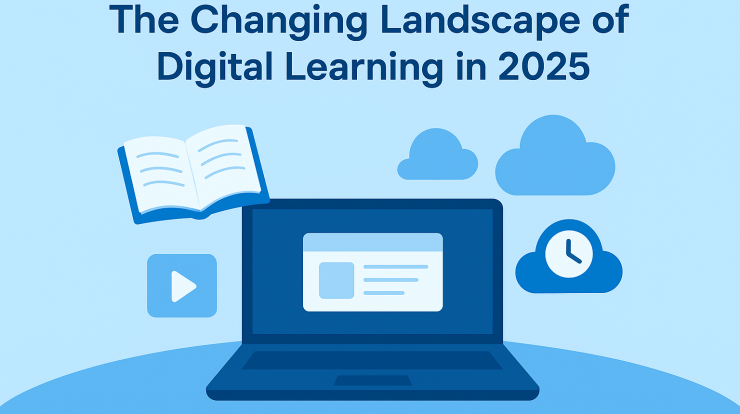Nurses are at the heart of healthcare, playing a crucial role in ensuring patient well-being. They’re the ones who keep a close eye on patients, checking those vital signs, keeping track of any little changes, and being there during moments of vulnerability. Their keen observation skills help detect subtle shifts that might otherwise be missed, enabling timely interventions.
As healthcare evolves, so do the expectations placed on nurses. To meet these demands, specialized education is becoming increasingly important. Advanced education provides nurses with technical knowledge in specific areas and improves their ability to handle complex health issues effectively.
In this changing landscape, Accelerated Bachelor of Science in Nursing (ABSN) programs are emerging as a game-changer, shaping the future of nursing practice. This article will explore the many aspects of an ABSN education and how it impacts healthcare.
What is an ABSN?
An ABSN degree is a concentrated program aimed at people who already possess a bachelor’s degree in a different field and want to switch to nursing. Unlike the traditional Bachelor of Science in Nursing (BSN) programs, which typically span four years, ABSN programs condense the curriculum into a shorter time frame, often ranging from 11 to 18 months.
ABSN programs capitalize on students’ prior academic backgrounds, focusing mainly on nursing-specific coursework and hands-on clinical experiences to swiftly prepare them for licensure as registered nurses (RNs). These programs are tailored for people with a strong foundation in science and mathematics, enabling them to fast-track their entry into the nursing profession.
Due to the accelerated pace of ABSN programs, students must make a significant commitment as they immerse themselves in rigorous academic study and clinical training to gain the requisite knowledge and competencies. Despite the demanding nature of the program, graduates emerge with the qualifications and skills necessary to pursue various nursing roles and contribute meaningfully.
The impact of ABSN degrees
ABSN programs lay a strong foundation, preparing future nurses for the road ahead. Students graduate with fundamental knowledge in anatomy, physiology, and pharmacology, thanks to the intensive coursework.
These programs dive deep into the theoretical roots of nursing, giving students a solid understanding to build upon. They’re encouraged to think critically, wrestle with ethical questions, and advocate for their patients using evidence-based practices.
But it’s not all theory. ABSN education puts a premium on hands-on experience. Students not only learn the ins and outs of nursing theory but also get their hands dirty (figuratively speaking) with practical skills needed on the job. And because ABSN programs are intense, students quickly pick up these clinical skills, making their transition into nursing smoother.
Speaking of skills, nurses are expected to stay up-to-date with the latest research and apply it to their practice. Through real-world clinical experiences, they hone their critical thinking abilities and learn how to apply textbook knowledge to actual patient care.
In ABSN programs, students get to rotate through different healthcare settings, learning everything from giving medications to wound care. They work alongside seasoned pros, picking up teamwork and collaboration along the way.
But being a great nurse isn’t just about technical know-how. It’s also about having a heart. Nurses are trained to see patients as people, not just a list of symptoms. They’re taught to be empathetic, to think on their feet, and to communicate effectively.
Leadership is also a big part of nursing education. ABSN programs make sure students are equipped with the skills needed to lead teams and navigate the complexities of healthcare systems. It’s all about producing nurses who can innovate, lead, and make the most of limited resources in the ever-evolving world of healthcare.
Leveraging online learning for niche areas
Online education has revolutionized how nursing education works, opening up top-notch programs to those with busy schedules. Remote learning is a game-changer, especially in specialized areas of nursing, keeping up with the ever-changing needs of students and healthcare systems alike.
One massive perk of diving into niche nursing topics online is the flexibility it offers. With asynchronous learning, you can tap into course materials and join discussions whenever it fits your schedule. That means you can juggle work, family, and whatever else life throws while still diving deep into your studies.
Online learning includes everything from videos and simulations to interactive lessons. These tools help you grasp those tricky nursing concepts and practice your skills in realistic patient care scenarios, all from the comfort of wherever you’ve got Wi-Fi.
Who says you need to be in the same zip code to bond with classmates or chat with professors? Online learning breaks down those barriers, letting you swap stories, trade ideas, and grow professionally through forums, group projects, and virtual hangouts.
You should research to find appropriate nursing qualifications if you’re eyeing a career switch or a step up the ladder. It is worth comparing ABSN vs BSN program features and requirements to see what suits you the best. While both programs will equip nurses with the essential clinical knowledge and skills to excel in the field, the intensity and duration might vary – you can find out more by clicking here. The accelerated pathway allows students with a non-nursing bachelor’s to transition into nursing roles, making it a great choice for those seeking a career change.
Rockhurst’s programs tick all the boxes with flexibility, accessibility, and top-notch education. Through their online coursework, you can dive into lively learning environments, team up with peers, and get real-time guidance from experienced faculty tutors.
Focusing on niche areas of practice
In nursing, there’s a role for everyone, from caring for specific patient groups to tackling unique healthcare challenges. Each specialty comes with its skills and demands, but at the core, it’s all about providing top-notch care, regardless of age or situation. Online courses allow you to explore and integrate specialized nursing roles into your daily life.
So, as you think about your nursing journey, remember that it’s all about excellence and putting patients first. And who knows? You could inspire the next generation of nurses to go out there and change the world.








